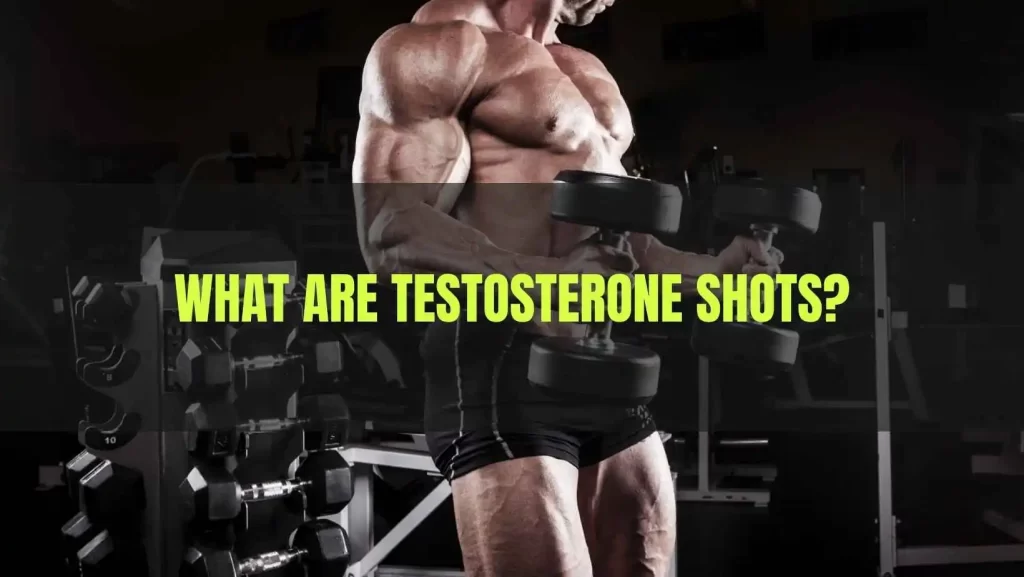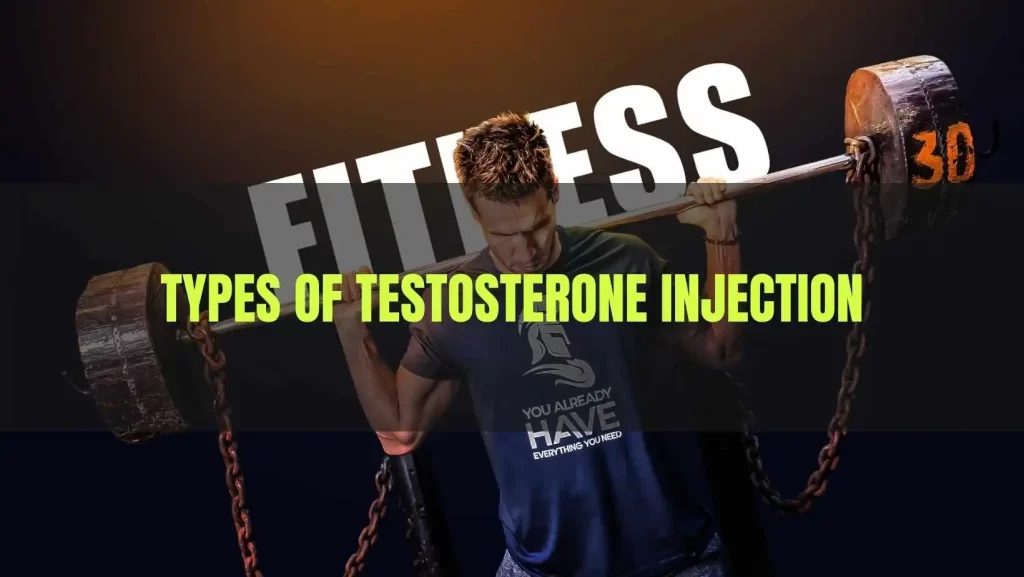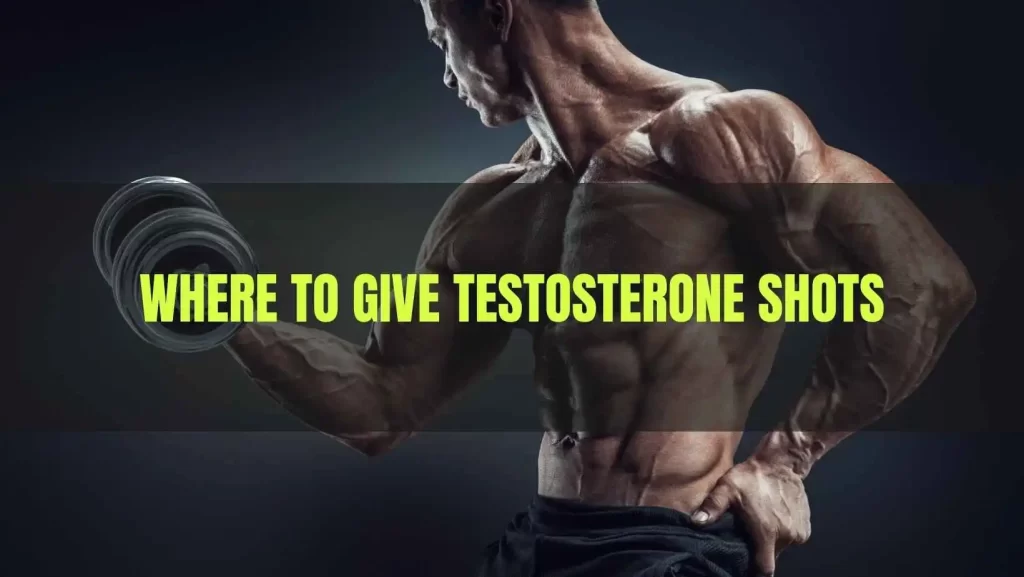Hormone therapies include testosterone shots. Their principal application is to treat sexual dysfunction in men and postmenopausal symptoms in women who have a testosterone deficit. Transgender males and nonbinary individuals may potentially benefit from testosterone shots as part of masculinizing therapy.
Treatment is not always necessary for all males with low testosterone, and it is not always safe. The FDA has only approved testosterone replacement therapy for males with low testosterone owing to testicular, brain, or pituitary gland diseases, not for natural age-related reductions.
Many people find testosterone shots to be safe, however they can have negative effects. The adverse effects may vary depending on why the person is using the injections.
Although testosterone shots can help with low testosterone caused by medical disorders, the FDA does not suggest using testosterone to treat natural aging-related testosterone decreases since it may increase the risk of certain health risks.
Continue reading to learn more about testosterone shots, including their uses, safety, and potential adverse effects.
What is Testosterone?
Testosterone is a hormone found in both humans and other animals. The testicles are the primary source of testosterone in men. Women’s ovaries produce testosterone as well, albeit in considerably lower quantities.
The production of testosterone begins to increase dramatically throughout puberty and then begins to decline after about the age of 30.
Testosterone is most commonly connected with sex drive and is essential for sperm formation. It also has an impact on bone and muscle mass, fat storage in men, and even red blood cell synthesis.
A man’s testosterone levels might also have an impact on his mood.
Testosterone levels can be determined with a simple blood test. There is a wide range of normal or healthy testosterone levels in the bloodstream.
According to the University of Rochester Medical Center, normal male testosterone levels range between 280 and 1,100 nanograms per deciliter (ng/dL) for adult males and between 15 and 70 ng/dL for adult females.
Because ranges change between labs, it’s critical to discuss your results with your doctor.
According to the American Urological Association, if an adult male’s testosterone levels are less than 300 ng/dL, a doctor may perform a workup to establish the source of low testosterone.
Low testosterone levels may indicate pituitary gland dysfunction. The pituitary gland delivers a signaling hormone to the testicles to increase testosterone production.
A low T test result in an adult man could indicate that the pituitary gland is not functioning properly. However, a young adolescent with low testosterone levels may be undergoing delayed puberty.
Men with somewhat increased testosterone levels may experience few visible symptoms. Boys with higher testosterone levels may enter puberty early. Women with high testosterone levels may exhibit masculine characteristics.
Abnormally high testosterone levels could be the result of an adrenal gland disease or possibly testicular cancer.
High testosterone levels can arise in less serious situations as well. Congenital adrenal hyperplasia, for example, which can affect both males and females, is a rare but normal source of increased testosterone production.
If your testosterone levels are abnormally high, your doctor may prescribe more testing to determine the cause.

What are testosterone shots?
Testosterone shots are testosterone injections. This hormone is present in both males and females, but males naturally have higher quantities.
In the United States, testosterone therapy is becoming more popular. Before considering long-term testosterone therapy, clinicians should ensure that the patient is aware of the dangers and advantages.
The following sections discuss the applications of testosterone shots.
Treating low testosterone levels in males
To treat males with low testosterone levels, doctors may recommend testosterone shots. Hypogonadism refers to low testosterone production by the testicles.
Low testosterone levels might have detrimental consequences. Males with low testosterone have lower sperm count, decreased bone or muscle mass, increased body fat, and erectile dysfunction. In healthy adult males, normal total testosterone levels in the bloodstream range from 280 to 1,100 nanograms per deciliter (ng/dl).
When used to treat hypogonadism, testosterone therapy can provide the following benefits:
- enhanced sexual function
- improved strength and lean muscular mass
- better mood
- improved cognitive function
- osteoporosis could be reduced
It’s vital to note that this therapy only addresses the symptoms of low testosterone, not the underlying cause.
Anyone who feels they may have low testosterone should consult a doctor. The symptoms, however, are extremely generic and could be caused by other illnesses or lifestyle factors.
Testosterone therapy in females
Females are more opposed to testosterone therapy than males.
Total testosterone levels in healthy adult females range between 15 and 70 ng/dl. Females with low testosterone may experience fertility issues, irregular periods, vaginal dryness, and a lack of sex drive. Despite this, doctors rarely offer testosterone shots to address low testosterone in women because they can be masculinizing.
Doctors may, however, offer testosterone medication to aid females with hypoactive sexual desire problem after menopause. Other indications and symptoms that people may suffer following menopause, such as anxiety, mood changes, weight increase, and decreased bone density, have not been validated by research.
Currently, the FDA has not approved any products for female testosterone therapy. Furthermore, there are no easily available formulations in the United States that provide the recommended therapeutic dose of 300 micrograms per day for females. As a result, a female will often require the assistance of a compounding pharmacy to fill the prescription.
Masculinizing hormone therapy
People who use testosterone therapy can develop a more masculine appearance. Transgender males, nonbinary people, and others may decide to utilize testosterone shots as part of their gender transition. Masculinizing hormone therapy refers to the use of testosterone shots.
Testosterone therapy aids in the development of male sexual characteristics while decreasing feminine ones, and it can result in any of the following changes:
- Emotional and social functioning alterations
- increasing facial hair growth
- body hair growth
- acne flare-up
- a more powerful voice
- male pattern baldness with receding hairline
- alterations in the distribution of body fat
- Muscle mass increases
- Menstrual periods are not present.
These testosterone therapy regimens are similar to those used to treat male hypogonadism. Taking testosterone shots once a week may be the most effective strategy to maintain consistent amounts of this hormone.

Types of testosterone injection
Testosterone shots come in a variety of forms. These are some examples:
- Testosterone Cypionate (Depo-Testosterone)
- Testosterone Enanthate (Xyosted and also available in its generic form)
- testosterone undecanoate (Aveed, which is a long acting formulation)
How to use them
When a man receives a testosterone injection, the hormone enters the body directly through the muscle. People can select one of two methods:
- self-administering the shots at home by injecting the hormone into the thigh with a home injection kit
- Having a doctor inject them into the buttocks muscle at a doctor’s appointment
People who receive testosterone shots will normally visit their doctor every few months for monitoring. Depending on the individual’s circumstances, treatments could span a lifetime or be temporary.
Are they safe?
When administered according to a doctor’s instructions, testosterone shots may be safe for many people. However, research has connected testosterone therapy to a number of adverse effects and potential consequences.
The following are some of the possible side effects of testosterone therapy:
- a greater likelihood of cardiovascular problems
- exacerbated lower urinary tract symptoms
- Polycythemia is a kind of blood cancer that is uncommon.
- a higher risk of venous thrombosis
Some people may become allergic to testosterone shots. Following an injection of testosterone undecanoate, for example, a severe allergic reaction or respiratory problems may occur. Breathing difficulties, disorientation, and skin rashes are all possible symptoms.
Other types of testosterone, such as testosterone enanthate, may cause an increase in blood pressure, increasing the risk of a stroke or heart attack.
People who have had strokes, heart attacks, heart disease, or high blood pressure should notify their doctor before beginning testosterone shots, since they may be at a higher risk of problems.
If you develop any of the following symptoms after receiving a testosterone injection, you should seek immediate medical attention:
- shortness of breath
- slow or difficult speech
- chest pain
- weakness or numbness in an arm or leg
- pain in the arms, neck, back, or jaw
- dizziness
- faintness
If a doctor administers male testosterone shots to an adolescent to address a growth and puberty delay, the goal is to produce an accelerated growth spurt during puberty. This therapy should have no effect on the adolescent’s final adult height.
Testosterone Shots Side effects
People who receive testosterone shots may encounter the following modest side effects:
- discomfort or breast enlargement
- acne
- a more powerful voice
- tiredness
- hoarseness
- back ache
- bruising, redness, discomfort, bleeding, or hardness at the injection site
- difficulty sleeping or staying awake
- gaining weight
- joint discomfort
- fluctuations in mood
- headaches
If a person has any of the following more serious side effects, they should consult their doctor:
- vomiting or nausea
- lower leg discomfort, redness, or warmth
- Hands, ankles, foot, or lower legs swelling
- breathing difficulties
- yellowing of the skin or eyes
- Extremely long-lasting erections
- Urinary alterations, such as difficulty urinating, increased frequency, reduced flow, urinary urgency, or blood in the urine
- severe abdominal pain in the upper right quadrant
- Changes in mood, such as depression, anxiety, or suicidal ideation
Testosterone Shots for Men
There are a lot of Testosterone shots that are available for men. These testosterone shots can also provide different benefits for men in various fields of expertise such as bodybuilding, powerlifting, along with treating several health problems men may have.
Here are some of the best Testosterone shots men can use:
Depo-Testosterone (Testosterone Cypionate)
Depo-Testosterone is one of the best Testosterone injections for men who are bodybuilding, powerlifting, or for men who are suffering from low testosterone levels. This particular steroid injection has the ability to not only increase a person’s testosterone levels, but also their red blood cells. This steroid is primarily used for men who have higher than normal cholesterol levels or who have had a heart attack, stroke, or other serious cardiovascular problem.
Bodybuilders who utilize Depo-Testosterone usually end up gaining amazing benefits such as increased muscle mass, strength, and endurance. The best way to notice the effects of Depo-Testosterone is through blood serum tests. This particular Testosterone injection will increase the levels of red blood cells within a person’s bloodstream that are associated with fighting off infections, cancer, and other serious diseases as well as increasing physical performance.
Delatestryl (Testosterone Enanthate)
Delatestryl is a steroid that is used in the treatment of breast cancer. It is also used to treat female infertility. This drug is not suitable for use by pregnant women, children or those who suffer from prostate cancer. This steroid is a long-acting form of the corticosteroid dexamethasone. It works by decreasing the production of substances in the body that cause inflammation and pain, such as histamine, leukotrienes, prostaglandins and thromboxane.The side effects associated with Delatestryl include muscle weakness, high blood pressure and headache.
The drug can be injected into a muscle or given as an injection in the buttocks. It can also be given as a slow injection into the vein. The dosage will depend on the condition being treated and how severe it is and whether it has been caused by surgery or radiation therapy. Delatestryl also has the ability to stop bleeding in a short amount of time.
Furthermore, Delatestryl can be incredibly useful for men who are experiencing symptoms of a vasectomy in order to stop bleeding. Vasopressin is a hormone released by the hypothalamus that increases blood pressure and causes the release of water from the body’s tissues, which helps increase blood flow. Vasopressin levels are decreased in individuals with diabetes, stroke, and heart failure. This can lead to problems like shock or tissue death. Delatestryl or other hemostatic agents can be used to constrict the blood vessels and stop bleeding.
Aveed (Testosterone Undecanoate)
This particular version of Testosterone Undecanoate is incredibly useful for a lot of reasons. Mainly, Aveed is used as a treatment for many different types of cancer, as well as a treatment for autoimmune diseases. People who are looking to lose weight can also look into taking Aveed, which is another huge plus. In the world of bodybuilding, Aveed is mainly used as a prohormone, or precursor to the hormone testosterone.
This steroid injection is also popular for those who are looking to speed up the rate that they gain muscle mass. Some people may not ever want to take testosterone, but for those who do, Aveed is a great choice. The usual Aveed Dosage ranges from 300mg to 600mg per week, which is mostly enough for any performance-enhancing athlete.
Testopel (Testosterone Pellet)
Testopel is a testosterone pellet that is implanted under the skin of the scrotum, and it slowly releases testosterone over time. This provides a steady supply of the male hormone, which keeps levels at a normal range. Testopel can help with low testosterone levels, poor quality sleep (insomnia), and sexual dysfunction.
The implantation procedure for Testopel is performed by a urologist in an outpatient setting. The pellets are inserted through a needle into the scrotal sac, where they are then released slowly to provide continuous testosterone release.
Testopel can be used to treat men with conditions such as hypogonadism and delayed puberty. It can also be used in men who have had their testicles removed (e.g., because of cancer). This medication is also prescribed to women who want to prevent the development of breast cancer. In addition, there is a chance that men may experience hair loss and/or skin irritation with this drug.
Ditate-DS (Testosterone Enanthate)
Diatate-DS is a Testosterone Enanthate, a type of injectable anabolic steroid. It is used in the treatment of male hypogonadism and breast cancer in women who are not responsive to or cannot tolerate other forms of therapy.
This drug belongs to a class of drugs known as androgens (male sex hormones). Diatate-DS works by replacing or supplementing the natural testosterone that the body no longer produces adequately.
Depo-Testadiol (estradiol cypionate; testosterone cypionate)
Depo-Testadiol (estradiol cypionate; testosterone cypionate) is a hormone that is used to treat certain conditions in women. This medication is a combination of estradiol and testosterone. In some cases, it is used in women who have had their ovaries removed. Depo-Testadiol can also be useful for treating moderate to severe symptoms of menopause.
Depo-Testadiol is a hormone that is used to treat certain conditions in women. It can be given as an injection, implant, or skin patch. The medicine helps prevent ovulation and may help produce more of the hormones estrogen and progesterone.
The medicine may also be given to help prevent some types of cancer, including breast cancer and uterine cancer. It may also be given after surgery to reduce the risk of developing endometrial cancer or ovarian cancer.
The medicine comes in many different doses and forms, including tablets, injections, skin patches, implants, and vaginal rings.

Where to give Testosterone Shots
There are several ways to administer Testosterone shots or injections. The body part in which the steroid must be injected will vary depending on a few factors. First, the location of the injections will vary according to what type of hormone is being administered. Second, how much testosterone is being injected must be taken into consideration because the amount can influence how intense and uncomfortable the injection will be. Third, another factor to consider is the health of the person receiving the injection, which will dictate what type of needle should be used.
The most common injection site for testosterone is the thigh. The thigh is an ideal place to inject because it has a large amount of capillary beds and muscle tissue that is rich in collagen. Injection sites also vary depending on if a person is male or female, but generally speaking, injections are injected into the upper arm, buttock or abdomen for men and into the inner thigh for women.
Testosterone Shots Cost
For those who are asking, “How much are Testosterone shots?” we also have an answer for you. But it’s not exactly as simple as you think.
Just like the body part in which the Testosterone shots should be administered on, the costs of Testosterone shots can also vary depending on a few factors. The first factor is the location where the steroid will be purchased. Each country has its own currency, meaning the price of Testosterone shots in each country will definitely vary from one nation to another.
The second factor is the country’s customs. Customs in some countries might not allow the import of medical items and those in other countries will charge a fine if the item is brought into the country. Another factor is the type of steroids that will be purchases. Each steroid costs different from another.
Another factor is the frequency of usage in which the steroid is used. The cost of each shot will vary depending on the frequency it is being taken. The last factor that can affect the price of Testosterone shots is the quantity that will be purchased. With more quantities, there will be a lower amount due to purchasing bulk packs and having to pay for it all at once rather than paying for each individual unit as you go. The cost of Testosterone shots usually ranges from $30 to $100 per shot, but that will change depending on the factors we have listed above.
Summary and Conclusion
To address low testosterone caused by certain medical disorders in men, doctors may give testosterone shots. It does not heal the underlying problem, although it may help with symptoms. These shots can also be used to treat sexual dysfunction caused by menopausal changes or as part of masculinizing hormone therapy.
People should be informed of the potential long-term and short-term consequences of utilizing testosterone. Before prescribing Testosterone replacement medication, doctors should conduct a complete evaluation and explain the benefits and dangers with the patient.
To prevent hazards, it is critical to always follow a doctor’s advice.



Testosterone shots alone caused me to gain 20 pounds! Testosterone will provide you with a lot of muscle mass, but it does not increase fat loss. In fact, you may gain more fat than muscle. If this happens, you will have to adjust your diet and training accordingly.
I’ve used Testosterone therapy for a year with no adverse effects and gaining significant mass. I suffer from low testosterone levels but have not experienced symptoms of low T. I believe that my high levels of IGF-1 have helped my body to metabolize and utilize the testosterone in a positive manner.
Testosterone cypionate is the best! I was looking for this type of Testosterone. Testosterone cypionate help me feel more energized, which is great because my work is physically demanding.
Testosterone is the best for bodybuilding. I’ve been using testosterone undecanoate for a few years and have never felt so confident. I’m strong, lean and feel like I can take on anything. It was the difference between slouching around, tired all the time, to being a powerhouse.
Testosterone cypionate is a good type of testosterone injection, I must say. I completed a 10-week Test C cycle, and I couldn’t be more pleased with the outcomes.
The use of testosterone shots is my go-to supplement. I don’t need to spend hours in the gym anymore and I got stronger. The benefit from testosterone shots is that it works very quickly. I feel more motivated to work out than before and I’m eating better.
Testosterone therapy is the only thing that gives me the energy and drive to get through the day. I take it every morning and my muscles feel noticeably fuller. It’s my secret weapon against fatigue, so I can focus on my work! Testosterone shots side effects are minimal and I don’t feel them. My mood is always elevated and I forget about my pain for the most part.
My favorite testosterone enanthate thus far. Absolutely no PIP. Taking testosterone shots or a few pints of test per week and I have noticed a difference.
I was always a little unsure with the use of testosterone shots…then I tried them out and loved them. I can feel it throughout my day in more ways than one. The benefit from testosterone shots are off the charts, my sex drive is higher, and I’m lifting weights like crazy!
I have utilize testosterone shots for the past six months and I have noticed a huge difference in my physical performance. Testosterone is fairly pricey but it’s worth the price for me. It not only has given me a healthier libido, but I also feel an increased testosterone levels. I am much more focused on tasks and no longer feel like there is “nothing to do”.